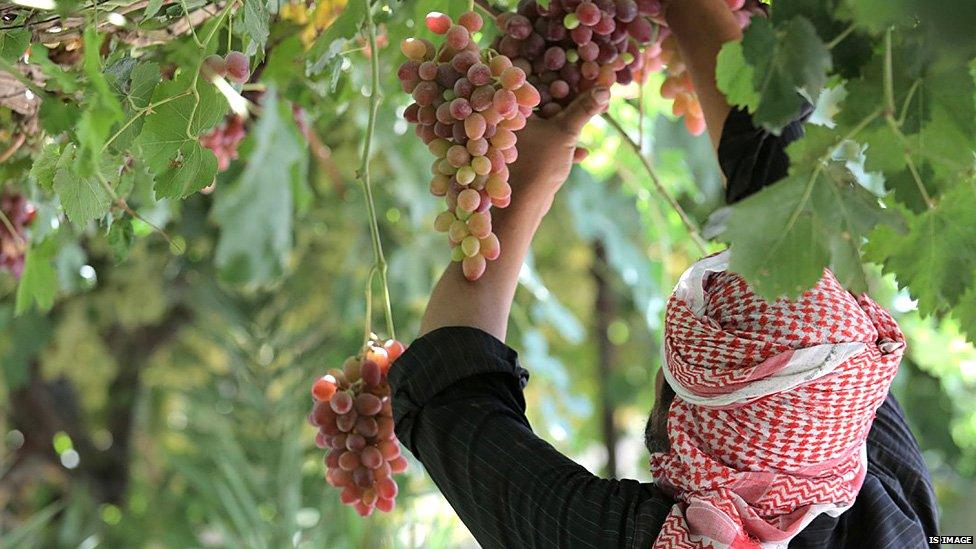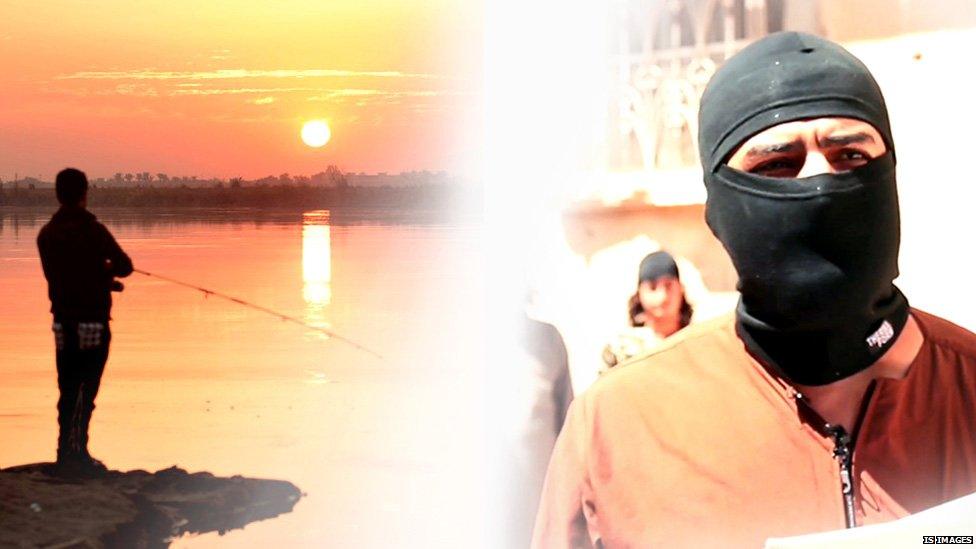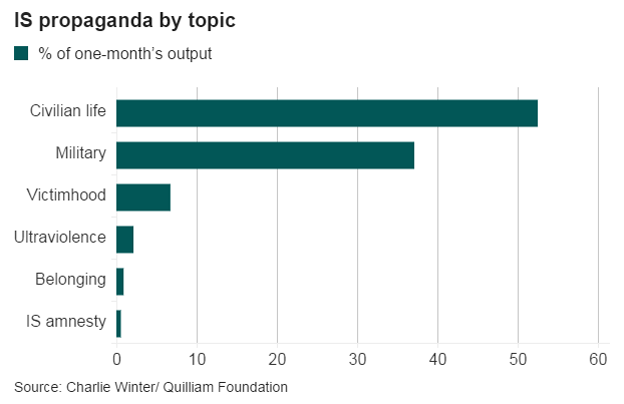IS propaganda pushes state-building, Quilliam study finds
- Published

From an IS photo report about the harvesting of grapes in the city of Raqqa (12 August 2015)
Most propaganda from the self-styled Islamic State now aims to prove it is a genuine nation, rather than glorify acts of violence, a study suggests.
Security think tank Quilliam said the fighting group was going to huge lengths to sell itself as a viable and functioning transnational state.
IS media teams produced 900 separate reports, rulings, videos and radio programmes in one month, it found.
It said 469 of these - more than half - focused on civilian life and statehood.
These were spread worldwide through social media search terms and hashtags, to dodge attempts to close down its "official" social media channels.

Find out more

Read the full BBC News Magazine article: Fishing and Ultraviolence: The strange world of IS advertising

Core themes
IS operates some 40 media operations across the territory it controls, is attempting to seize or claims to have an operational presence. Most of the output is in Arabic, but many reports are translated into English and other target languages.
Over the course of a month, the counter-extremism think tank logged all announcements, broadcasts and publications which it said could be clearly attributed to the group's media teams.
Quilliam recorded almost 900 individual online messages and publications covering one of six core propaganda themes: war, brutality, victimhood, mercy, belonging and civilian life.
Charlie Winter, the study's author, said: "The overall narrative has shifted in favour of victimhood, war and utopianism.
"The brutality, mercy and belonging narratives are still present - but instances of those three are vastly outnumbered by the others."


Civilian life: Reports projecting images of a normal and functioning society
Military: Reports from the various frontlines
Victimhood: Attempts to present IS as the victim of injustices
Ultraviolence: Images and reports of killings
Belonging: Information aimed at persuading others to join
Amnesty: Reports claiming that it can and will exercise mercy

Melon agriculture
In the 469 instances which focused on statehood, IS media teams sought to prove that it was capable of administering land under its control - including examples of supposedly functioning public services and economic life.
"Statehood is the group's chief appeal, one that is just as important domestically, as it is abroad," said Mr Winter.
"Through the portrayal of seemingly every facet of life in the 'Caliphate' - from treatise on hijab [headscarves] and martyrdom to melon agriculture, Islamic State's propagandists are able to create and cultivate a comprehensive image of utopia."
The fighting group had originally operated a series of official and branded social media accounts, but as they were increasingly blocked or removed by internet service providers, its media teams began embedding specific hashtags and search terms to ensure its messages could be spread by followers around the world.